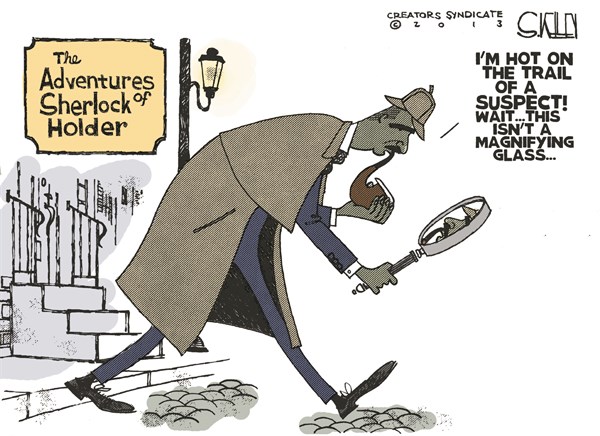Below are the synopses (irregular plural of synopsis) of the three episodes of the first season of the acclaimed BBC series, ‘Sherlock’ which aired in 2010. Following those summaries are definitions for words and expressions dealing with a crime drama and mystery that can be found in those descriptions.
The words or expressions that match those definitions can be found (sometimes more than once) in the ‘word search’ puzzle at the end of this post. Please note that most of the words in the text will be in their base form in the puzzle unless otherwise noted. (e.g. wishes – wish / flattened – flatten / boys – boy, etc..)
Ok, the game is afoot (= starting to happen) !!
Note: You can print this post out by clicking on the ‘Print/PDF’ button at the bottom of this post.
Episode 1
The police investigate the deaths of a series of people who all appear to have committed suicide by taking a poisonous pill. They turn to their unofficial consultant, Sherlock Holmes, who deduces various elements pointing to a serial killer. Meanwhile, Holmes is introduced to John Watson, a former soldier who served in Afghanistan, and the pair immediately move into a flat in Baker Street. John Watson slowly gets to know and trust Sherlock despite police officer Sally Donovan warning him that Holmes is a psychopath and will one day be responsible for murder. Sherlock's brother Mycroft, at first not revealing his identity, kidnaps Watson and asks whether he'll spy on Sherlock for money, but John refuses. After a series of incidents, the person responsible for the deaths, a taxicab driver, reveals that his victims took their own lives by playing a game of Russian roulette with two pills: one fatally poisonous, the other safe. Watson shoots the cabbie and runs away. As he dies, the taxicab driver reveals that Moriarty was his sponsor.
Episode 2
Sherlock is hired by an old friend to investigate a mysterious break-in at a bank in the City. He discovers that symbols spray-painted onto an office wall are a coded message intended for an employee of the bank, who is later discovered dead in his flat. The next day, a journalist is killed and the same symbols are found nearby. Sherlock and John follow a trail of clues that link the two dead men to a Chinese smuggling ring, who are trying to retrieve a valuable item that one of them stole. Sherlock eventually cracks the coded message based on Suzhou numerals and a book cipher, but not before John and Sarah (John's girlfriend) are kidnapped by the criminals. Sherlock rescues John and Sarah, but the leader of the gang escapes. After escaping, the leader of the gang is in communication with her superior, who is identified by the initial "M". She is then shot by a sniper.
Episode 3
Sherlock is commissioned by Mycroft to investigate the suspicious death of a government employee, who was working on a top-secret defence project: the Bruce-Partington Project. After rejecting the case and handing it over to John, Sherlock begins to be taunted by a criminal who puts his victims into explosive vests and sets Sherlock deadlines to solve the apparently unrelated cases, which include a twenty-year-old cold case involving the shoes of a drowned boy, the disappearance of a businessman, the death of a TV personality, and the assassination of a guard of an art gallery by the "Golem". As Sherlock solves the cases, he finds links between them. After clearing up the original case of the civil servant, Sherlock tries to force his unseen adversary to reveal himself. Near the end of the episode, Sherlock and "Jim Moriarty" reach a standoff, where Jim reveals that he is responsible for the crimes. In the final seconds, Sherlock Holmes points his gun at a bomb on the floor that had been strapped to John.
Definitions:
1. someone who has a serious mental illness that makes them behave in a very violent way towards people
2. a lethal game of chance
3. to solve a complicated problem, or to find the answer to a mystery
4. to find the reason or explanation for something
 |
| a magnifying glass / a loupe |
5. to try to find out the facts about something in order to learn he truth about it
6. an act of entering a building illegally using force, especially in order to steal things (Note: forgot to put in puzzle)
7. an occasion when someone dies
8. a series of pieces of connected evidence that prove that someone did something wrong or illegal
9. a situation in which someone or something can no longer be found or seen10. a crime that the police are trying to solve
11. to illegally take someone away and make them a prisoner, especially in order to make their family or government give you money or allow you to do what you want
12. picture or shape used to represent something
13. making you believe that something is wrong, dangerous, or illegal
14. Another term for policeman or policewoman
15. not connected to each other, such as two separate crimes that are not connected
16. a disagreement or fight in which neither opponent can do anything to win or achieve their aim
17. written using a secret system of words or signs
18. to know something as a result of considering the information or evidence that you have; this is
something Sherlock Holmes is very good at and is like a game to him
19. capable of killing or inflicting injury; venomous
20. an object or fact that someone discovers that helps them solve a crime or mystery; a piece of information that helps explain a situation or provide a solution to a problem
21. adverb for ‘so severely that you die as a result’
22. the crime of killing someone deliberately
23. a connection between two things, people or events
24. usually followed by on: to keep a secret or furtive watch
25. a group of people involved in the secret and illegal importing or exporting of prohibited or dutiable goods
26. an algorithm in which the key is some aspect of a book or other piece of text
27. containing or involving very important and secret information, especially information that might affect a government
28. an enemy or opponent
29. someone who kills several people one after the other, often in the same way
30. the murder of a famous or important person, especially for political reasons
31. a sleeveless piece of clothing covering the upper body, packed with explosives and armed with a detonator
32. a verbal phrase for solving a problem or a mystery
33. to let something become known, for example a secret or information that was previously not known
34. to kill yourself
35. to sink under water and die
36. to provoke or deride with mockery, contempt, or criticism
37. someone who shoots at people from a hidden place from a long distance away, usually an expert rifleman
Extra exercise 1: (as an added exercise for the students in my classes) Below are the titles for each of the above episodes. Nothing in the synopses really gives you a clue which title goes with which episode. Using your creativity, can you match a title to each episode and imagine what is missing in the description that would give that title to that episode? If in groups, prepare a group presentation. If working the exercise alone, write out what is missing.
Here are the three titles (not in order)
Answers to the definitions and the first extra exercise will be posted tomorrow.
Extra exercise 2: (as an added exercise for the students in my classes) Imagine you are one of the writers for the series 'Sherlock' and it's your job to write a synopsis of your scenario for the producers. Using as much of the vocabulary above from the puzzle and episode descriptions, write in one good paragraph, your own episode summary.





.jpg)









